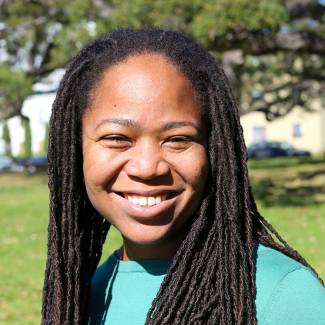Philosophy and Values
I am committed to creating better quality of care for disenfranchised communities of color. The communities that fall under this umbrella are continuously harmed by larger systems of oppression in our society, including White Supremacy, Patriarchy, and Capitalism. In addition, organizations that are designed to serve these communities often unintentionally become perpetrators of oppression. This is a natural consequence of existing within the context of these larger systems. In order to create intentional shifts within an organizational context, the system as a whole must be willing to engage in a transformational process to unpack the ways in which their members have become both victims and perpetrators.
I believe that systemic transformation starts with the “I”. In order to create change on a systemic level, all members of the system must be willing to unpack the ways in which they have been impacted by systemic forms of oppression and the ways in which these impacts influence one’s daily actions. I believe that there is an intrinsic connection between one’s internal process and their external actions. As individuals within a system begin to learn, grow, and expand there is a direct translation back to the system at large, whether that be through the ways that relationships are formed and maintained (with colleagues and clients) or through ways in which individuals think about policy and system development. If the individuals that a system is comprised of are not willing to engage in their own transformational work, then the system as a whole will continue to unintentionally perpetuate oppression in both subtle and obvious ways.
My approach utilizes a racial equity lens while incorporating transformational learning theory, trauma informed practices and an intersectional cultural identity framework.
Based on this, I often approach my work from an inside-to-outside perspective. This is often done through creating intentional spaces for people to engage, reflect, and process wider systems of oppression (e.g. White Supremacy, Patriarchy, etc.) and the insidious ways in which messages are internalized as a result of these larger systems. From an organizational development perspective, while the members of the system are engaging in “inside” work, the individuals in positions of power within the system can then begin to look at the “outside” work (i.e.: assessing for areas of change that need to occur within various levels of the institution to bring about stronger racial equity outcomes for the communities being served).
Guiding Values and Beliefs
I STRIVE TO STAND IN ALIGNMENT AND BE GUIDED BY THE VALUES AND PRINCIPLES OF CULTURALLY HUMBLE AND TRAUMA INFORMED PRACTICES.

- Creating Safety
- Trustworthiness and transparency
- Collaboration and mutuality
- Empowerment, voice, and choice
- Prioritizing a cultural, historical, gender approach
- Commitment to being a Lifelong learner
- Critical self-reflection
- Recognizing and challenging power imbalances

